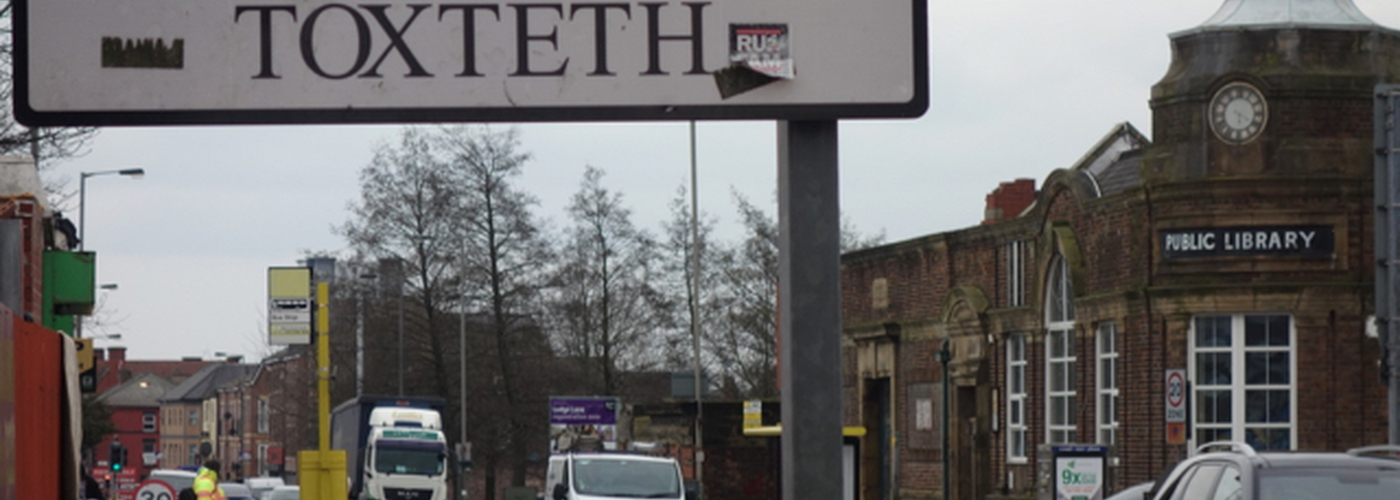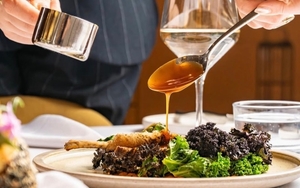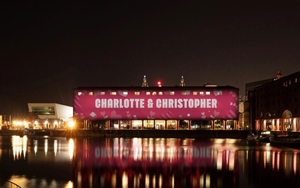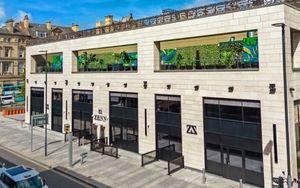Gerry Corner takes the pulse of the L8 artery and finds it pumping with life
ON a scrap of grass clinging to the skirt of Lodge Lane, among the legion of yellow crocuses ignoring the gnawing cold, an African man is assembling clothes racks.
An art installation? No, “It’s business”, he says, unpacking his wares from shopping trolleys, each crammed fuller than a Ryanair cabin bag.
Despite the cracks, Lodge Lane is quietly providing a glorious lesson to those who would like to bolt shut the country’s doors
It may not be art but his one-man street performance is a perfect symbol for the multi-racial, entrepreneurial force that runs through this singular stretch of Liverpool 8 and has animated politicians and the national media.
Lodge Lane is no Utopia, not while it remains at the heart of one of the UK’s most deprived areas. Not until talk of “planning blueprints” and “world-class facilities” and attracting investment and jobs is actually realised.
But, despite the cracks, it is quietly providing a glorious lesson to those who would like to bolt shut the country’s doors.
Here, Yemeni and Somali, Caribbean and Moroccan, Indian and Pakistani, Syrian and Iranian rub along, giving the lie to the theory than multiculturalism won’t work outside London and bringing a drive and work ethic that has turned the lane into a flourishing agglomeration of independent businesses.
Meanwhile, their future replacements are being prepared: a Lodge Lane based organisation, Tiber, is teaching 14-year-olds to be the next generation of entrepreneurs. Those teenagers have already conceived and overseen the creation of a new public square, with a one-day Arab arts festival booked in for the summer.

Here and there small-scale projects contribute to the physical and emotional sense of community. The art deco library, deemed a low enough priority for it to be shut for good on All Fools’ Day, 2012, now hosts art and sewing and Brazilian dance classes. Up the road, the Greenhouse Project contributes “multi-cultural play and arts”.
Like those early spring flowers, they add colour and vibrancy but they all need support and must hope to survive the hard frost of Brexit.
Much of the enterprise is concentrated on food and this may be key to the good relations enjoyed here. Donna, a local restaurant meeter, greeter and server, engages us in conversation and talks of a strong community spirit.
On the street, 50 shades of faces. People smile easily. A woman directs us to an ATM across the road and a little way down, not even bothering to mention the nearer one, on the same side, which wants to charge us 99 pence for the privilege of using it.


Thirty-six years ago this street was ablaze as the Toxteth riots raged and the commercial focus of the city’s only multi-ethnic community plunged into decline. Now the breath of fresh immigrants has revived its standing and Liverpool City Council wants to create an “ethnic food hub” there.
Few living in the area now were around during the riots and for those who were it’s a hazy memory. In Lodge Lane, they seem to be just getting on with it and the owners of umpteen restaurants and takeaways and food stores make no mention of “ethnic food hubs”.
Stores where recorded messages thank god every time the door is pushed open. Stores like the Middle Eastern Bazaar, whose narrow aisles navigate a world of produce, from grape molasses to Skippy smooth peanut butter, jars stacked on jars, a tower of biscuit boxes leaning impossibly over the heads of customers.
And dwarfing them all, the Liverpool 8 Superstore, with its rainbow rows of fruit and veg lining the paverment and its 2015 BBC Radio 4 food retailer of the year award.
Only two of the once numerous functioning pubs remain, the Boundary, at the Edge Hill end, and Chaplin’s Bar. There isn’t much call for whisky chasers among this demographic and some places, like the former Masonic Arms and The Dart, have been turned to the task of filling bellies, with others likely to follow.
Abundant cafes and restaurants are more than businesses. Conflict is resolved when people sit down together, and food is bringing them to the table. While you are breaking bread, you are not breaking heads.
•••••••


 A cracking blueberry tart at Coffee Lodge
A cracking blueberry tart at Coffee Lodge
Coffee Lodge
The deeply polite young man behind the counter of this bright, cheerful cafe, has a smile to illuminate to gloomiest winter’s day.
Home made falafel and hummous look terrific. Arabic breakfast is served until 11pm. That’s PM.
Few legal highs beat coffee and cake and the chap in the corner is way ahead of us if his good-natured rantings are to judge by. His language as fruity as my blueberry tart, which is soft and almond-infused.
Ferrero Rocher cake is as indulgent as it sounds, with a crushed biscuit base and squirty cream on the side.
If the coffee is bog-standard, the cake is just the job and, at £2.20 each, cheaper than Bold Street.
“Fucking Andrew Lloyd Webber!” exclaims the man in the corner, and nobody disagrees.
••••••


 Jerk chicken at Jerk Lodge
Jerk chicken at Jerk Lodge
Jerk Lodge
The former Marley’s restaurant, which was the former Masonic pub, serves saltfish and sociability.
There’s no mistaking these were once licensed premises, but a blanket of red heats the room, flags and posters establish a Caribbean theme.
As people come and go, jokes and warm words are exchanged Once a week, Jamaican Mary, aged 104, comes from the nursing home up the road for the victuals and the vibe.
Donna is on hand with jerk chicken and a bowl of jerk gravy to pour over. And goat curry, the meat soft and savoury, the sauce rich and well balanced and plenty enough to mop up the rice.
With both, a perfect mound of rice, flavoured with bay and kidney beans, plus shreds of carrot, onion and pepper steamed in butter, the lot for a £4 regular portion, £7 if you go large.
•••••••



Zaalouk (£3) at Marrakech
Marrakech – A Taste of Morocco
Kebabs, tagines, couscous and more in a small but perfectly formed space, cosily furnished, filled with beautiful objects, many of them – like the mosaic tile topped tables, handsome and sturdy – imported from Morocco.
Here, a couple of dishes from among the starters prove most agreeable and, at £3 each, stonking good value, with the complimentary dish of olives.
Brivat, made with traditional warka pastry, thin and crisp, and a choice of fillings – minced meat, vegetables which need a little more seasoning, and, best of all, spinach and feta, especially when dipped into mayonnaise subtly flavoured with saffron, lemon and garlic.
And Zaalouk, aubergine and tomato and garlic cooked down and mashed together, with good home-baked bread.
•••••••


Kebabish Original
The only chain on the lane, but with 60 branches UK-wide opening a franchise here represents a vote of confidence in the area.
Asian dishes, mainly grilled meats and curries, are put together while you watch.
The surroundings are plain, the food tasty and cheap. A huge glass of iced water arrives unsolicited. Late morning it’s quiet, the only other diner a woman who orders a curry, says she wants it “hot”, and takes a seat.
Four kebabs (above), formed from spiced minced lamb, arrive succulent and sizzling atop a bed of grilled onions, Alongside are bread, soft and warm and gently scorched from the grill, hot chilli sauce to feed the flames, raita to douse them down again, and a small salad that’s zinging it’s heart out, £4.49 all in. A princely serving at pauper’s prices.
•••••••

 Fatat tamer, a dessert of breadcrumbs mixed with butter and dates, from Ambassador restaurant
Fatat tamer, a dessert of breadcrumbs mixed with butter and dates, from Ambassador restaurant
•••••••
Ambassador Restaurant
Lebanese cuisine, like Maslouq, a soup with lamb, served in a traditional pot, £7.
We seek only coffee and pudding but the man behind the counter claims no knowledge of an Americano, maybe it’s his way of blotting out Trump.
Fatat tamer, a dessert of breadcrumbs mixed with butter and dates (£4.50), is a generous helping held in a well-worn pot of clay. A mash-up, sweet and caramelised, richer than the G7, it may be too much to finish on your own – better to share with someone you love.















